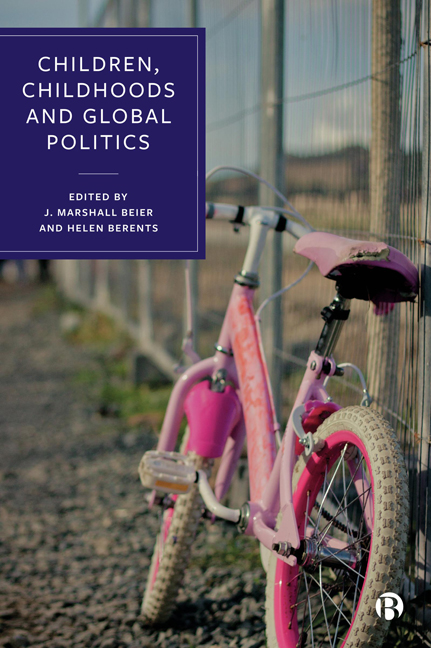14 - Children’s Agency and Co-construction of Everyday Militarism(s): Representations and Realities of War in Ukrainian Children’s Art, 2014–2022
Published online by Cambridge University Press: 03 April 2024
Summary
Introduction
The Russian Federation’s full-scale invasion of Ukraine in 2022 stunned the world with its brutal, targeted violence against civilians. Systematic war crimes by the Russian military have not spared children, who featured prominently as objects of violence in global media coverage (Falk, 2022). As children have been killed, trafficked, wounded, and maimed, this vulnerable group also comprises significant portions of the worst refugee and internally displaced person (IDP) crisis in Europe since World War II (Vierlinger, 2022). While many analysts trace how Russia’s war against Ukraine is fundamentally changing the global geopolitical order, we note that this war is likewise profoundly shaping the youngest generation of Europe’s largest country in ways that are still unfolding.
However, as we explore in this chapter, children’s intersections and interactions with this war and its resultant militarism began nearly a decade ago. Although the current escalation has intensified the themes we explore in this chapter, we have elected to restrict our focus to 2014–2022 to explore how these latent realities shaped Ukrainian children and young adults today – including Ukraine’s youngest soldiers who were in elementary school when this war began. The current war began when the Russian Federation annexed Ukraine’s Crimean Peninsula and sparked armed conflict in the Donbas region of eastern Ukraine. Under the pretext of a separatist conflict, the Russian government funnelled military, financial, and political support to proxy forces, leading to protracted conflict that received muted global attention (Dunn and Bobick, 2014; Galeotti, 2016; Government of the Netherlands, 2018; Marten, 2019; Hook, 2020; Troianovski, 2021).
Even before February 2022, the United Nations estimated that at least 14,000 lives had been lost, 1.6 million IDPs driven from their homes, and approximately 30,000 people wounded (International Crisis Group [ICG], 2022). In 2020, the United Nations Children’s Agency, UNICEF, estimated that the war had ‘deeply affected’ 580,000 children near the eastern frontlines and in areas controlled by Russia’s proxy forces, with 200,000 children requiring urgent psychosocial support, another 200,000 driven from their homes, and a fifth of conflict zone schools damaged by kinetic violence like shelling, causing widespread disruption of education (UNICEF, 2020).
- Type
- Chapter
- Information
- Children, Childhoods, and Global Politics , pp. 193 - 209Publisher: Bristol University PressPrint publication year: 2023



